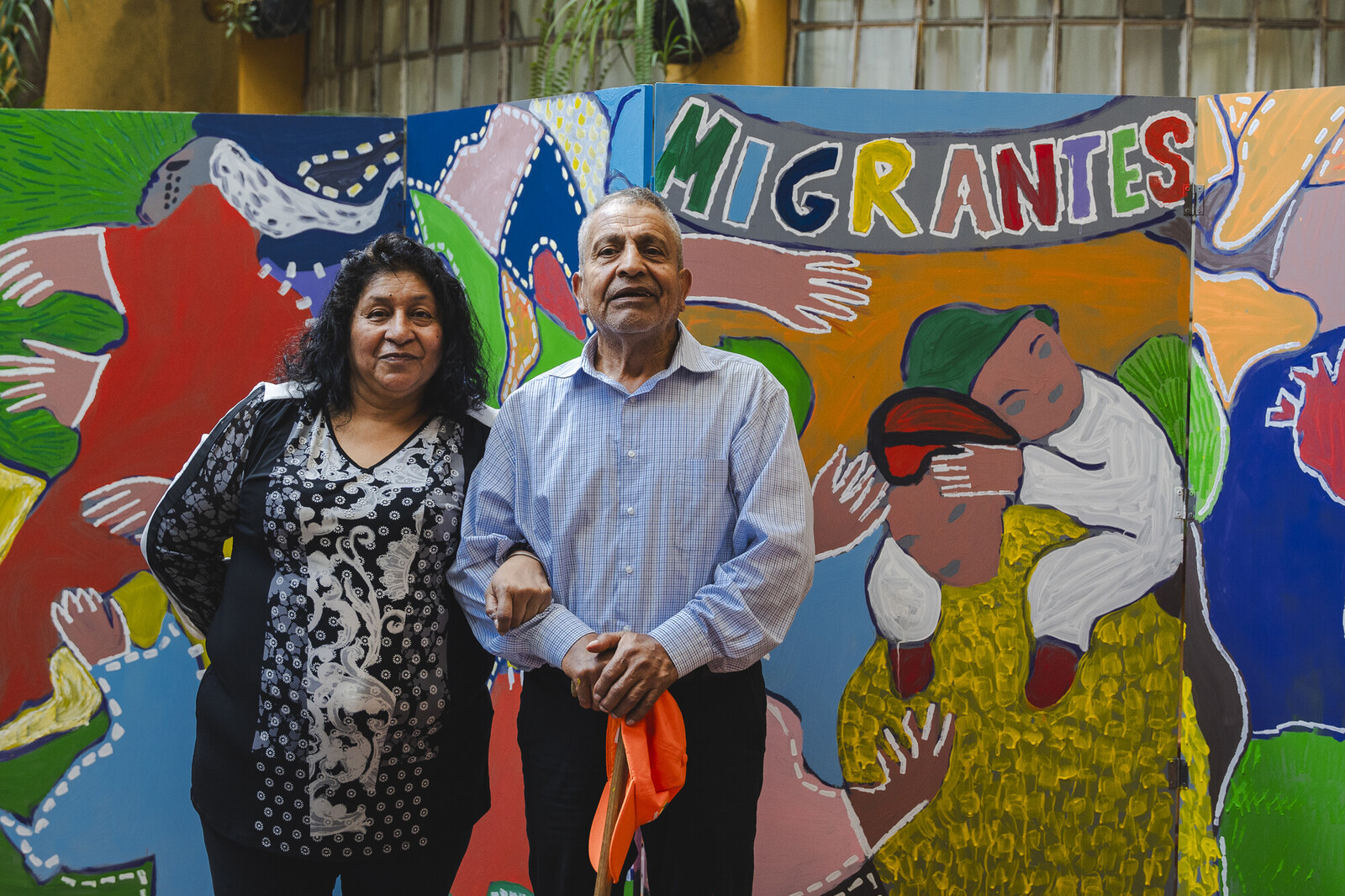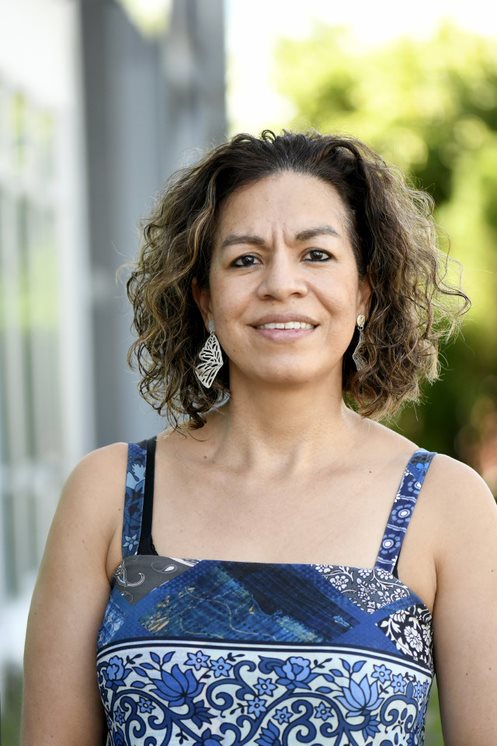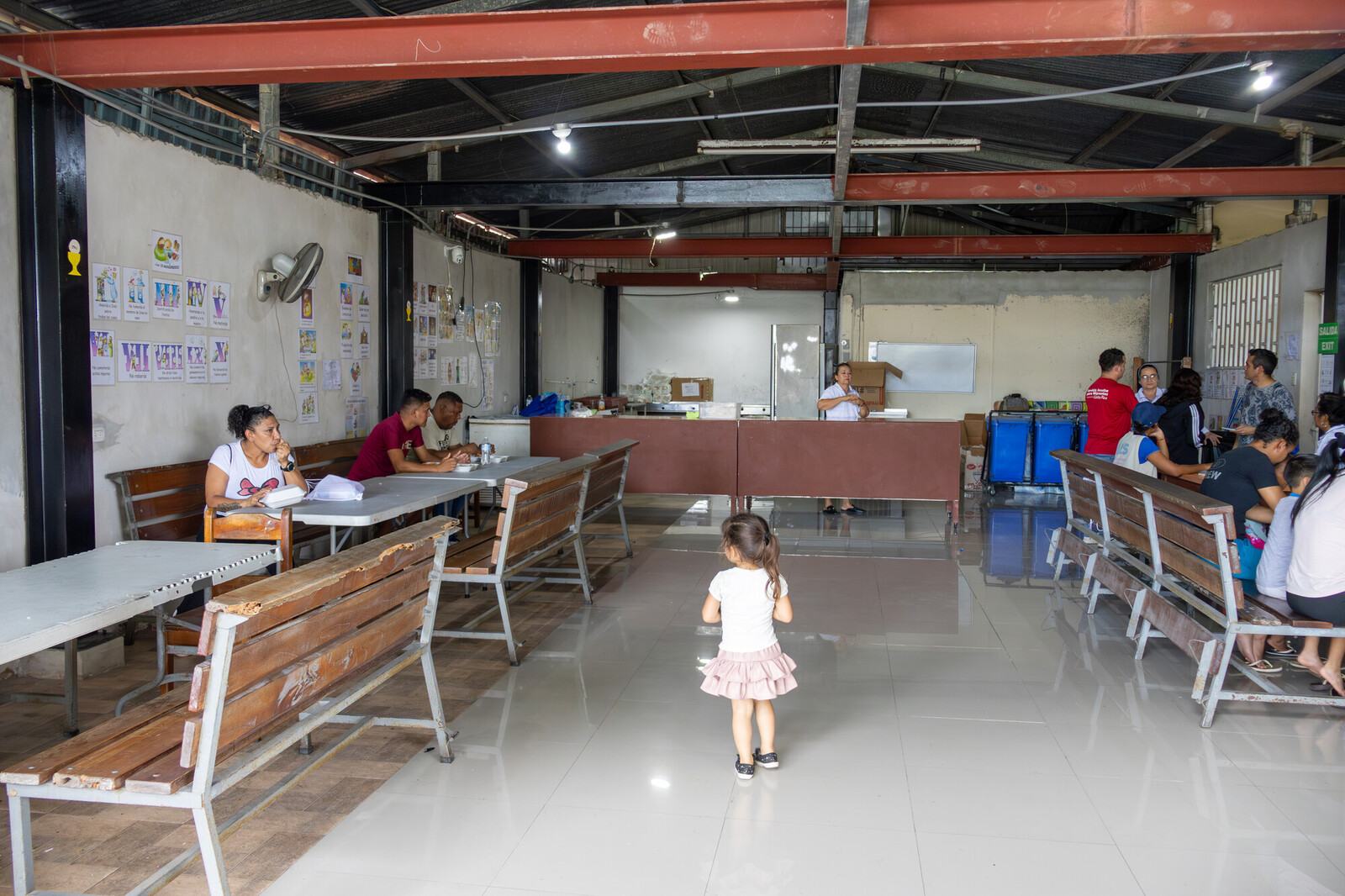
A dining hall run by a group of nuns provides services to migrants who arrive at Costa Rica's southern border. Rodrigo Henríquez
Last month, I traveled by bus from Costa Rica's capital to its southern border with Panama. I wanted to witness firsthand what our partners have been telling us: dozens of migrants are arriving daily. They carry little more than the clothes on their backs and are often in dire need of food, water, and medical attention.
At the border, I watched families with young children step off buses, exhausted, confused, and uncertain of where they were or what to do next. In many cases, they can’t go back to their home countries, but they have no option but to keep moving.
What I saw at the border is one example of the unthinkable hardships facing migrants in Latin America and all over the world. And it reinforced why we must continue to do all that we can to protect the lives and rights of all who seek safety and opportunity.
That’s why AFSC has launched the Hummingbird Plan—an emergency response to support migrants in Latin America. We chose this name intentionally. In Indigenous cultures across Latin America, the hummingbird holds deep significance, serving as a messenger between the physical and spiritual worlds. They bring us messages of hope—something we strive to offer migrants facing difficult journeys.
Through the Hummingbird Plan, AFSC is providing food, hygiene kits, humanitarian aid, and vital information to people on the move. We’re also supporting local organizations that help migrants and documenting human rights violations that people face on their journeys. We’re working to meet immediate needs as we advocate for systemic changes to address the root causes of migration in the region.
Migration in Latin America
Around the world, there are over 120 million people forcibly displaced by conflict, poverty, climate-driven catastrophes, and other crises. In Latin America alone, the impact is staggering. Since 2014, nearly 8 million Venezuelans have left their country, and since 2018, 850,000 Nicaraguans have also fled.
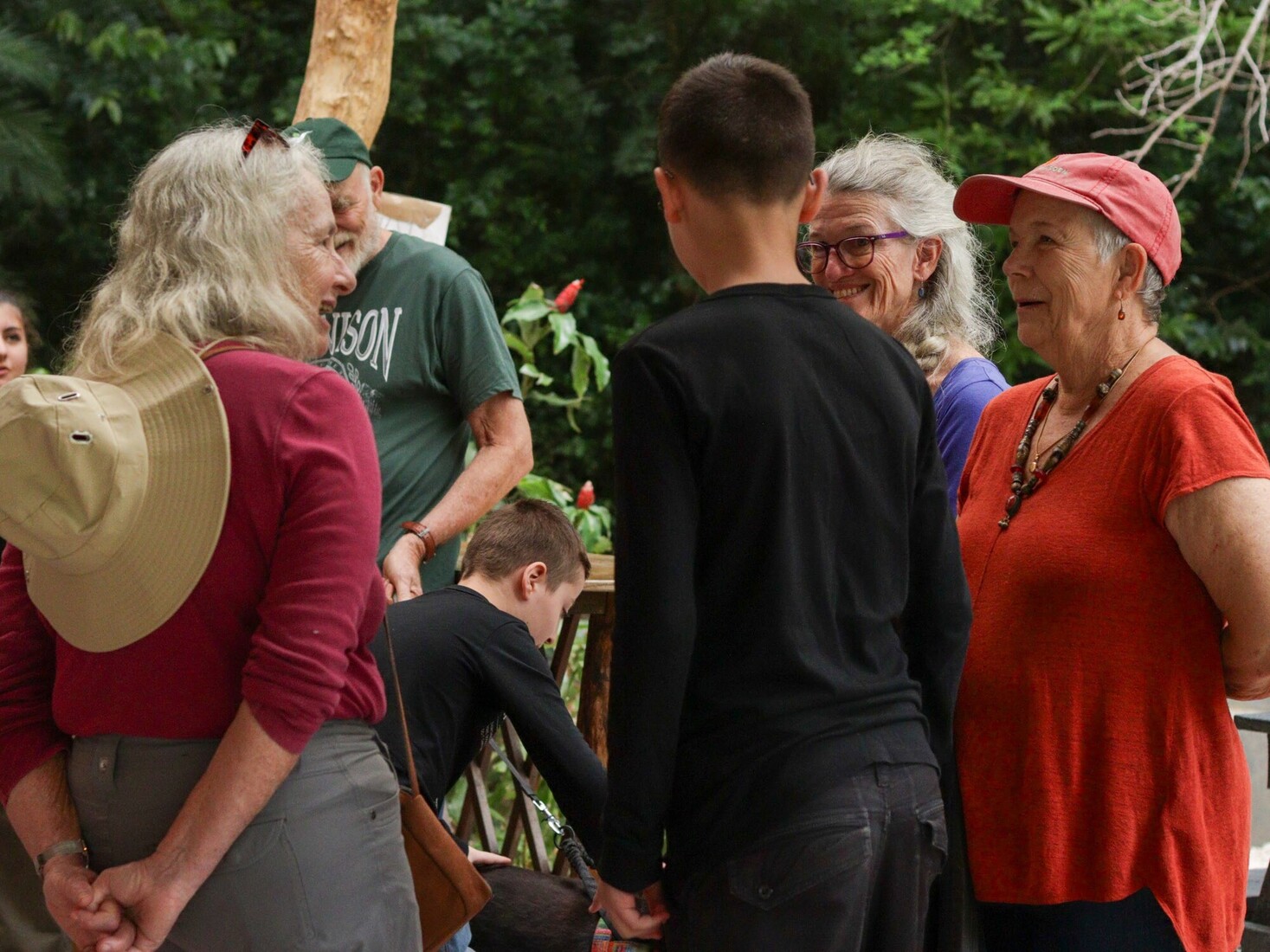
In Costa Rica, several Quaker families welcomed six migrant families from Russia, Armenia, Turkey, Azerbaijan, and Afghanistan. All had been expelled from the U.S. and detained in Costa Rica before being released, with support from AFSC and partners. Photo: Evelyn Obando
The migration patterns we’re seeing are increasingly complex. Some people were deported from the U.S. to countries that they left years ago—places that no longer feel like home. Others were deported to countries that they had never set foot in. In Costa Rica, for example, AFSC has assisted migrants from Russia, Iran, Armenia, Afghanistan, and other countries who arrived on U.S. deportation flights.
There are also migrants who attempted to reach the U.S. but were turned back by authorities or other hardships. Despite those setbacks, some try to return to Mexico in hopes of entering the U.S. again, making the dangerous overland journey all over again.
Just last month, I received a message from a father from Afghanistan who was traveling with his 5-year-old daughter. They had been robbed in Honduras and lost everything, but chose to continue north instead of turning back.
Despite their different paths, all migrants face similar challenges in Latin America. They’re trying to survive in countries with weak economies and political instability. They encounter unemployment, stigmatization, and even criminalization. Negative stereotypes about returnees create more obstacles.
For people who lived in the United States for many years, returning to find nothing is devastating. They have no family ties, no community connections, and no job opportunities. The families who remained often depended on remittances that have now stopped, pushing entire communities deeper into poverty.
Meanwhile, many organizations that have long provided services to migrants have shut down or reduced services due to U.S. cuts to foreign aid.
Meeting immediate needs, advocating for change
AFSC developed the Hummingbird Plan through conversations with local organizations that serve migrants. We talked to providers to understand what they needed most. Our response addresses both immediate humanitarian needs and long-term advocacy for policy change.
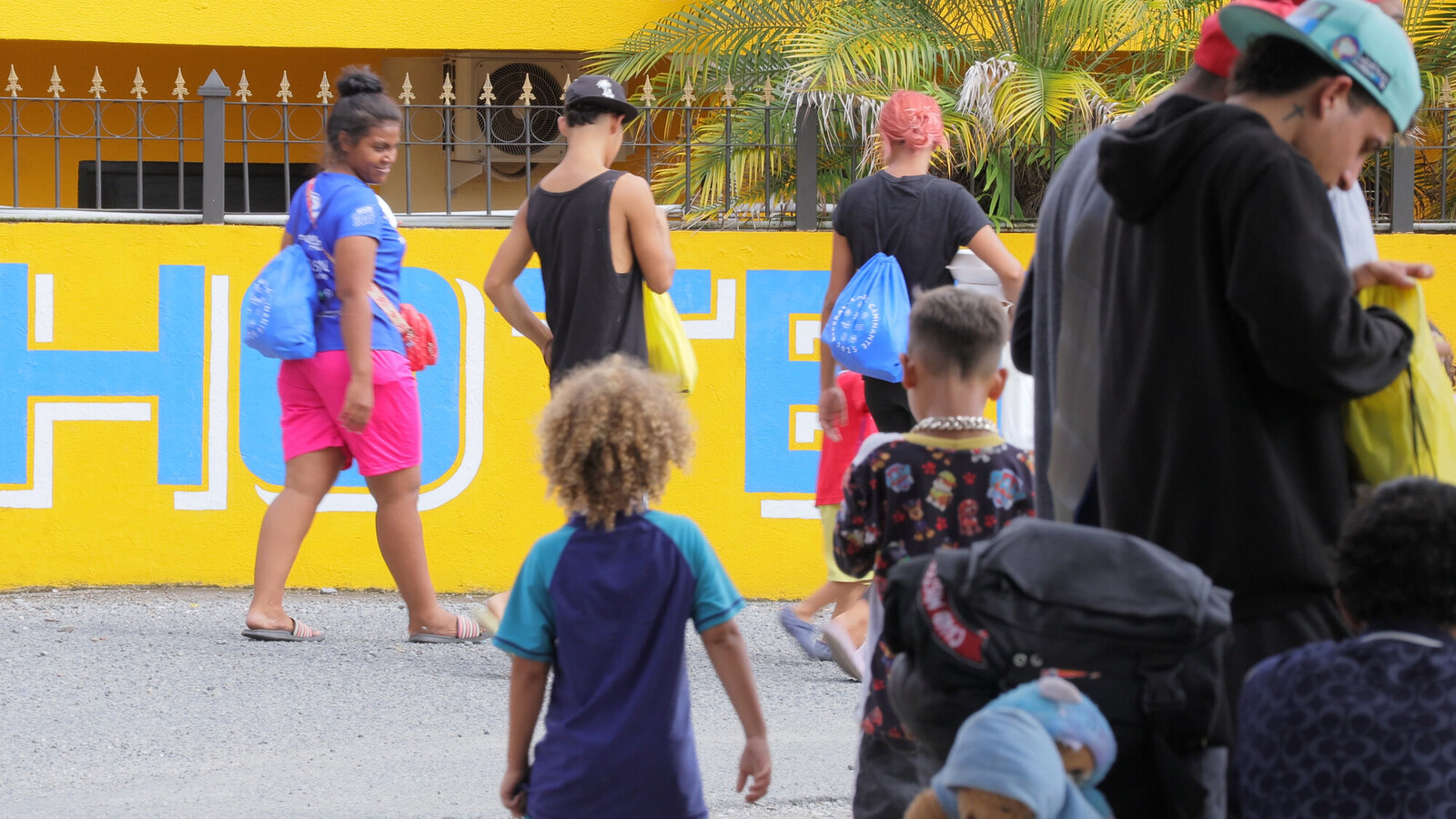
Migrants at a bus station near the southern border of Costa Rica. Photo: Rodrigo Henríquez
Through the Hummingbird Plan, AFSC is partnering with 13 local organizations that work with migrants in Mexico, Guatemala, Costa Rica, and El Salvador. Over the next three months, we hope to reach hundreds of migrants, providing them with direct support including:
- Food, water, and hygiene items.
- Legal assistance.
- Debit cards to buy food at supermarkets.
- Funds for transportation.
- Psychological services.
In addition, we’re documenting the cases of people forced to return from the U.S. and the human rights violations they experienced. With this information, we’re preparing reports for governments and international human rights bodies to raise awareness about the reality migrants face and the urgent need for policy change.
Building communities that welcome everyone
As a Quaker organization, AFSC believes in the inherent worth and dignity of every person. We see a future where everyone is welcome in our communities, where everyone has access to legal status, where civil and human rights are respected, and where people are safe from detention and deportation. We work for a world where migration is a choice, not a necessity, because everyone has what they need to thrive.
This vision recognizes that people have migrated for thousands of years and will continue to migrate as they seek safety and survival. The question isn’t whether people will move, but whether we can collectively create humane systems that protect rights and dignity rather than policies that push people toward more dangerous routes.
The Hummingbird Plan is designed as an emergency response, but it’s laying the groundwork for longer-term change. We’re working to prove that another approach is possible—one that centers human dignity and listens to the communities most affected by these policies.
The migrants I met at the Costa Rican border remind us that behind every policy debate are real people with families who face unimaginable circumstances. The Hummingbird Plan is our response—offering immediate help while working toward systemic changes to ensure safety and stability for all, wherever they are.
